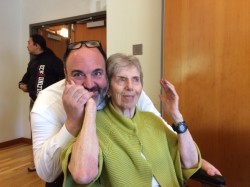Let Us Be a Resource for You
With a Little Help is dedicated to helping our community by offering the best in professional and supportive in-home care to your loved ones. We also want to be a resource when you are looking to learn more about their condition. While live, in-person educational...






 Andrew Cohen, of
Andrew Cohen, of